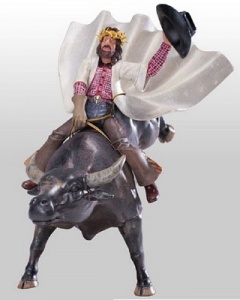Lots of folks are blogging and tweeting away about Middle Eastern politics, as different religious and political groups grapple for power after the Arab Spring.
Reza Aslan writes on the Washington Post’s On Faith blog that although Islamists in Egypt are less influential than one might think, their voice is necessary to the country’s nascent democratic debate:
“Yet what if this were an ‘Islamist rally,’ as it the press reported? What could be more crucial for a country trying to define its democratic future than allowing religious organizations who have spent the last fifty years huddled in mosques and hiding in back alleys to air their views to the voting public? Egypt desperately needs an open debate about the role of religion in society, the reconciliation of Islamic and democratic values. Six months ago, such talk would have landed these protesters in one of Mubarak’s sadistic prisons. Today they are part of the vibrant political debate that is taking place all over the country.”
Similarly, folks over at The Economist argue that Arab political leaders should embrace the Islamists, if only to help cultivate a healthy democracy:
“Such fears are understandable, but they should not get in the way of democracy. Provided Islamists say they accept the rules of the peaceful democratic game, as the mainstream ones now do, they must be given their chance to take up the reins of power, if that is what people say they want at the ballot box. The Arab world has tried suppression (and the West shamefully connived in it), and it did not work.”
CNN’s Belief blog puts a feminine face on Egypt’s Muslim Brotherhood, offering a behind-the-scenes look at the women of the Muslim Sisterhood:
“For years, the Islamist Muslim Brotherhood movement has won over Egypt’s poor and working classes with charity work — stepping in to provide many of the services that the former government did not provide, like subsidized healthcare.
And the women of the Sisterhood (the name for female members of the Brotherhood) have traditionally been more involved in welfare activities than their male counterparts.”
Haroon Moghul at Religion Dispatches rails against a recent New York Times column that accused the Tea Party of waging a jihad against America:
“Thank you, Joe Nocera. By labeling the Tea Party’s agenda a ‘jihad,’ Nocera has undone years of effort. My effort. The effort of so many Muslims, so many fair-minded observers, experts, thinkers and leaders, who rarely get the kind of platform that Nocera enjoys here, and who would never have access to it consistently.”
Also, as folks look back on the recent budget battle in Washington, Lisa Miller notes that Christians on both sides of the debate argued they were fighting for the poor:
“The tough choices will be left to a new Joint Select Committee on Deficit Reduction. But let’s imagine for a minute that the Christian Lord could pore over the thousand-page federal budget with a red pen.
What would Jesus cut? Military spending? Education? Health care? Aid to Africa?”
Finally, from the “wait, what?” file comes our Tweet of the Day: CNN quotes an article about “Bull riding for Jesus“:
@CNNbelief – Religion comes up a lot when you ride a bull who could kill you any number of ways.
So what do you think, folks? Is allowing for different religious views in Egyptian politics healthy or harmful? Should the word jihad be used more carefully? Are there different ways for Christians to fight for the poor? Would Jesus ride bulls? Let us know in the comments below!
As always, remember to follow us on twitter at @religionnewsnow!





